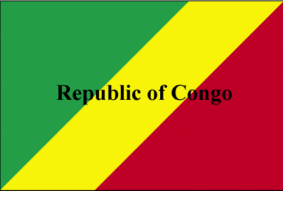 Every person has the right to a quality education; so says Congolese law. Yet years of instability have taken a toll on the country’s ability to provide schooling for its citizens. In spite of such challenges, the Republic of Congo boasts a relatively high literacy rate. New reforms, implemented in 2004, aimed at boosting infrastructure and improving teacher training, should brighten Congo’s educational future.
Every person has the right to a quality education; so says Congolese law. Yet years of instability have taken a toll on the country’s ability to provide schooling for its citizens. In spite of such challenges, the Republic of Congo boasts a relatively high literacy rate. New reforms, implemented in 2004, aimed at boosting infrastructure and improving teacher training, should brighten Congo’s educational future.
Pre-school in the Republic of Congo is optional and provided by private centers. Children begin primary school at age 5 or 6. The primary phase lasts six years, after which students earn a certificate of completion (Certificat d’etudes fondamental, or CEP) and sit for exit exams to determine their placement in secondary school.
The first cycle of secondary school, the general lycee, is obligatory and lasts 4 years. After the first cycle students study for either three or four more years, depending on which track they choose. Students can earn either a general or technical baccalaureat.
The following chart depicts the grading scale for secondary and post-secondary institutions:
| Scale | U.S. Grade Equiv. |
|---|---|
| 14.00-20.00 | A |
| 12.00-13.90 | B+ |
| 11.00-11.90 | B |
| 10.50-10.90 | B- |
| 10.00-10.40 | C+ |
| 10.00-10.30 | C |
| 9.00-9.90 | C- |
| 8.00-8.90 | D |
| 0.00-7.90 | F |
Primary students study French, mathematics, history, geography, science and technology, health, agriculture, domestic science and manual skills. Physical education and art are also offered.
Secondary curriculum includes French, English, history/geography, mathematics, physics, biology, chemistry, design, music, and physical education; courses in agriculture are offered in agricultural lycees. Students opting for technical training may study mechanics, architecture and engineering.
Higher education in the Republic of Congo is provided by the public Universite’ Marien Ngouabi in Brazzaville, the Advanced School for Business Management and Administration, and a number of other technical and professional schools offering health sciences, teacher training and agriculture programs.
© 2026 Gaetranslations | Terms & Conditions
Website by: Timefortheweb